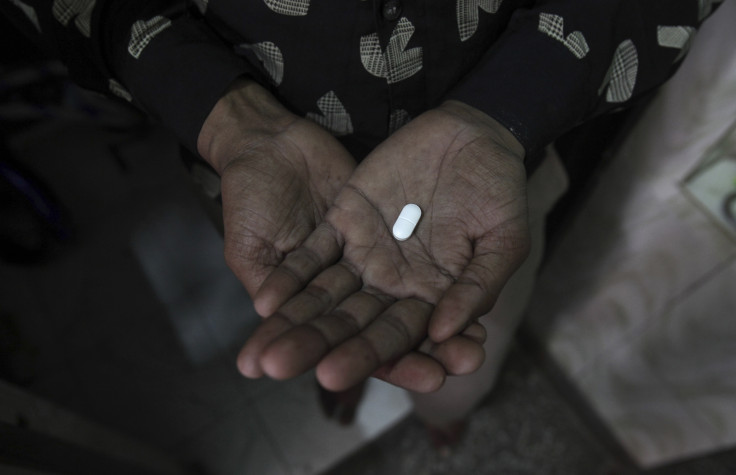India: 150,000 HIV/AIDS Patients Face Life-Saving Drugs Shortage Over 'Bureaucratic Hurdles'

As many as 150,000 HIV and AIDS patients in India may be left without treatment for a month, as a free distribution programme is set to run out of the life-saving drugs, a government official has said.
Missing dosages of antiretroviral treatment can increase patients' drug resistance and changes in medication can result in side effects, while leaving the virus to spread faster.
A Reuters investigation revealed that "bureaucratic bungling" had led to delays in the drugs being procured from pharmaceutical companies.
The government provides more than a third of India's 2.1 million HIV/AIDS patients with free treatment through the firms via a tender process.
The National AIDS Control Organisation (NACO), part of the Ministry of Health and Family Welfare, is currently trying to secure supples of tenivur and lamivudine tablets, which are used during the initial stages of treatment.
"There are so many bureaucratic hurdles," NACO deputy director general AS Rathore told Reuters. "The file goes to so many tables."
A tender for the medicine was approved last week, but supplies ordinarily take around 60 days, possibly more, to reach patients.
Rathore said that the programme only had 1.6 months of tenofovir/lamivudine tablets in stock, meaning that supplies will be extinguished in around 20 days' time.
As of 24 September, the NACO website showed ten Indian states had less than a month of stocks of such tablets.
"If they don't give medicines, we can't make medicines, we can't do anything. If stocks won't be there, they won't be there," Rathore said.
NACO is now putting pressure on the pharmaceutical companies awarded the government contract to supply the drugs. Aurobindo Pharma, based in Hyderabad, is one of the companies.
Rathore added that "poor coordination" between NACO and the state centres dispensing the medication had made it difficult to collect data on supply and demand.
NACO has said it is confident that it will be able to secure supplies before stocks run out.
A senior executive at Aurobindo Pharma said the company had received the approval to manufacture the drugs, but the process takes a minimum of 60 days.
"As per the books we can only supply by November-end, but we are trying to do something by which we can supply earlier to meet the urgent demand," the source said. "We are tying to work against time."
Reuters also gained access to documents which showed that in June NACO raised a demand for the medication lopinavir/ritonavir syrup – given to children infected with HIV.
A NACO official who did not wish to be identified, said the programme's current stock of the syrup will reach its drug expiration date by the end of this month, forcing the government to discard unused bottles.
They added that the tender for the syrup was pending approval.
The news comes a week after Prime Minister Narendra Modi wrote an op-ed for the Wall Street Journal, promising more affordable health care and better services.
India has the third largest HIV/AID epidemic in the world. Yet according to the charity Avert, the epidemic is slowing down, with a 57% decline in new HIV infections between 2000 and 2011, and a 29% decline in AIDS-related deaths between 2007 and 2011.
© Copyright IBTimes 2024. All rights reserved.






